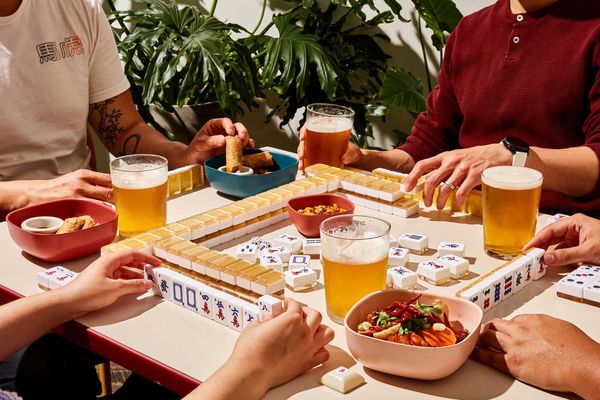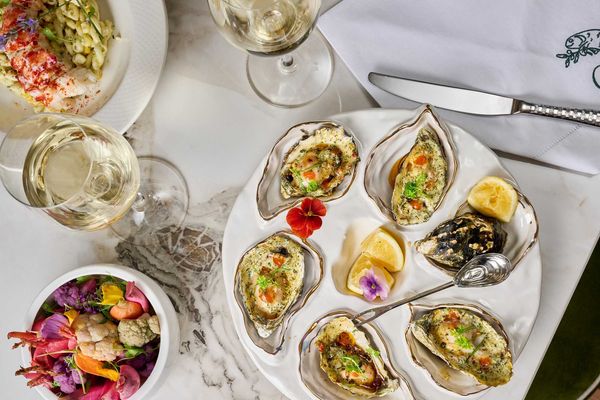Mining the existential truths and emotional skills of the poly set.
I'm a monogamist by choice. My own romantic fantasies have always revolved around finding that one perfect match—a myth that I've written about here.
I tried polyamory once and made a complete hash of it. It's just not for me, but I do have great respect for the polyamorous. I've always believed that as resources and information become more available, people are increasingly able to make choices that are more aligned with their core values. And one implication of that is sexual self-expression. The polyamorous are on the cutting edge of that self-expression, and of relationship development. They're constantly pushing the envelope.
That's not to say we'll all end up polyamorous one day. Monogamy, when chosen consciously, is an extraordinary expression of love and completeness—it's just that it's often not chosen consciously.
Either way, we monogamists have a lot to learn from the polyamorous. They have exponentially more relationship dynamics to deal with than we do, as they are responsible not only to their own partners, but to the partners of their partners, and so on. The quality of communication necessary to keep this structure operating is extraordinary.
The polyamorous simply have more data on romance than the monogamous. So when they talk about relationships, I listen. Here's what I've learned:
1) Tell the truth.
Even, and especially, when you don't want to. The point at which you least want to tell the truth is the point at which you have the most to gain from doing so. If your relationship is healthy, it can take the truth. If your relationship is going to break under the strain of what's true, it's probably the wrong relationship.
2) Don't sacrifice your individuality.
In order for a relationship to take flight as something more than the sum of its parts, the individuals involved must be able to fully self-express. Polyamorists value individual desires and priorities, hence the people in these relationship often seem more strongly "present" and "themselves" than a lot of monogamous couples seem. Embrace the ways you and your partner are different–that difference is what makes your relationship take wing, and it can generate that sense of being fully present in your relationship.
3) Experiment.
Be open to trying out, and having fun with, your partner's sexual desires and fantasies, and to romancing them the way they want to be romanced. If you want to be their "one and only" you're going to have to embody a lot of different energies—on dates, in social situations, and in bed. Also, consider that the only reason you don't want your partner to experience some specific fantasy is your own fear of inadequacy. Experiment by imagining what action you would take if that fear were absent. Our partners will thrive when we love them for their desires, no matter how mundane or crazy. Why wouldn't we want our partners to be fulfilled? This doesn't mean you can't have boundaries about which fantasies get lived out, but start by loving your partner for all that they are, which is trying to be expressed by what they want.
4) Admit that our partner is already free and that you are ultimately alone.
Your partner, assuming they are able-bodied and have even a little financial means, can leave you at any moment of any day they choose. Also, you are ultimately alone with your subjective experience. No other person, no matter how much you love them, can ever truly understand you in your entirety or fully share your experience. We are each alone with only ourselves to hear our thoughts. Your monogamous bond/domestic partnership/marriage certificate/children are no guarantee that your partner will stay with you forever, nor will those things ever completely bridge that gap of existential aloneness. Polyamorists know that deep down, we are all free and that we are all alone. Monogamists know it too, but we often use monogamy agreements to conceal the reality from ourselves. The fear implicit in that clouds and dulls our experience of life. On the other side of acknowledging our partner's freedom and our own solitude is the greatest peace available. To get there, practice mindfulness around these truths when you're spending time with your partner. Sitting at breakfast, remember that they are free to leave at any time—how can you not take them for granted in this moment? Making love, recall that you do not own your partner—how does that impact the sex? Fighting, recall there is no guarantee that you'll be together forever—what is there to say after that realization? This process will inevitably feel scary at first, but will become exhilarating with practice, and will open up levels of appreciation and intimacy you can't imagine.
5) Take part in community.
One thing polyamorists are good at is creating community, because (duh) sex bonds people. Monogamists need community too. Neighbors, in-laws, friends, extended families, support groups—whatever you do, don't give in to the very American urge to huddle in your little nuclear family watching TV and depending only on yourselves. That spells implosion. You don't have to have a sex with a lot of people to experience the energy, inspiration, love, and friendship that others bring to our lives as a couple.
6) Get a little friendlier with jealousy.
Polys know through experience that jealousy is just one more emotion that they can indeed survive, and that in fact can teach them a lot about themselves. Monogamists tend to either avoid jealousy (the spouse simply isn't allowed to do anything that might make them jealous); transcend it (me? I'm not jealous); or overdo it (I'll kill that bitch for flirting with you). It wouldn't hurt for us monogamists to play with jealousy just a little more. Try letting your partner flirt at a party or even (gasp!) have coffee with an ex with whom they remain friendly. When accepted as just one more emotion, jealousy can actually be used to increase the polarity and attraction between you. Have you ever had great make-up sex after a jealousy-induced fight? Right.Many polyamorists believe that jealousy is not a root emotion in and of itself; rather, it covers up deeper emotions like fear, shame, and memories of past abandonment. The real work, then is to uncover the deeper emotion and deconstruct that. In the context of jealousy, figuring our "What am I really afraid of?" will add to a foundation of strength and confidence in your relationship that is unimaginable from the unexplored perspective.
7) Remember that love is an infinite resource, but time is finite.
Loving one person does not preclude you from loving another, nor does the love of one person threaten the love of another unless you say so. There is an infinite amount of affection to go around if we allow it. That said, you may not have the time to fully love multiple partners, and it's okay to have a relationship structure that limits how you express affection in your life. But don't confuse time constraints and personal boundaries with the inability to love: Love and time are different issues. Explore the possibility that love begets love, and you will see your relationship with the person you choose to direct that love towards blossom. —Erik Newton
This article was originally published in Together, a magazine and podcast about relationships. To listen to their podcast, visit www.together.guide.




















